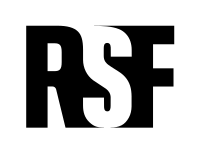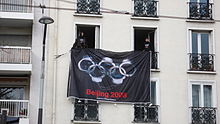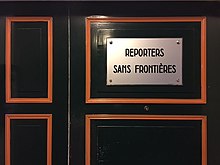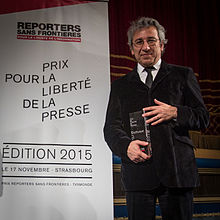Reporters Sans Frontières | |
 Logo since 2020 | |
| Formation | 1985 |
|---|---|
| Founder | Robert Ménard, Rémy Loury, Jacques Molénat and Émilien Jubineau |
| Type | Nonprofit organisation, non-governmental organisation with consultative status at the United Nations |
| Headquarters | Paris, France |
Director General | Thibaut Bruttin (since November 2024) |
Key people | Thibaut Bruttin, Secretary General Pierre Haski, President RSF France Mickael Rediske, President RSF Germany Christian Mihr, CEO RSF Germany Rubina Möhring, President RSF Austria Alfonso Armada, President RSF Spain Gérard Tschopp, President RSF Switzerland Erik Halkjær, President, RSF Sweden Jarmo Mäkelä, President, RSF Finland |
| Budget | €6 million (RSF France) |
| Staff | Approximately 100 |
| Website | rsf |

Reporters Without Borders (RWB; French : Reporters sans frontières; RSF) is an international non-profit and non-governmental organization headquartered in Paris, which focuses on safeguarding the right to freedom of information. It describes its advocacy as founded on the belief that everyone requires access to the news and information, in line with Article 19 of the Universal Declaration of Human Rights that recognises the right to receive and share information regardless of frontiers, along with other international rights charters. [1] RSF has consultative status at the United Nations, UNESCO, the Council of Europe, and the International Organisation of the Francophonie. [2]




